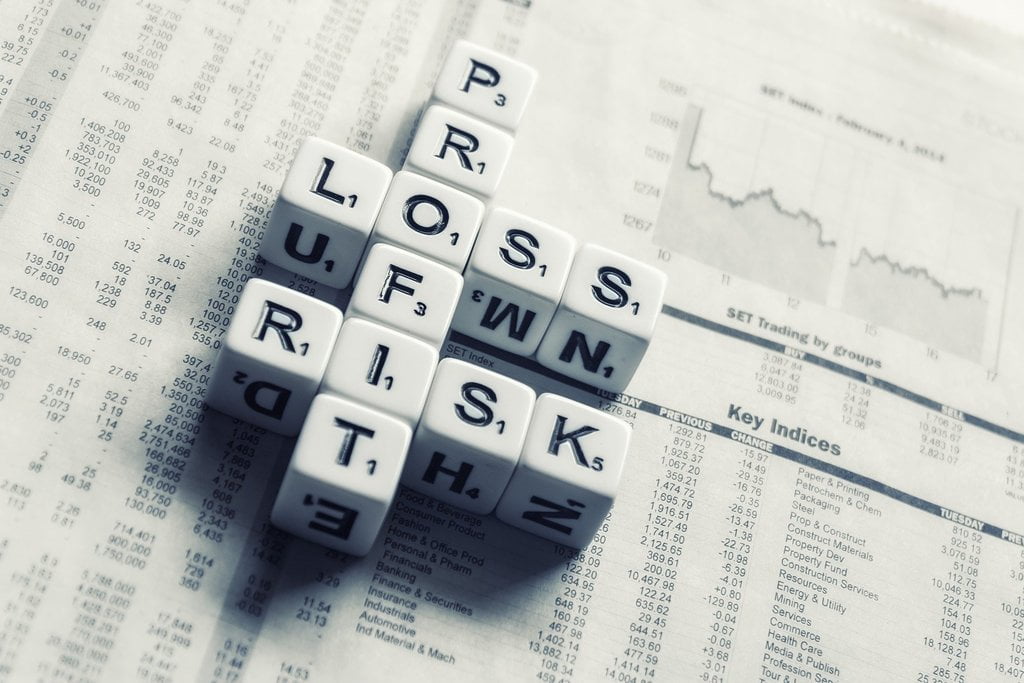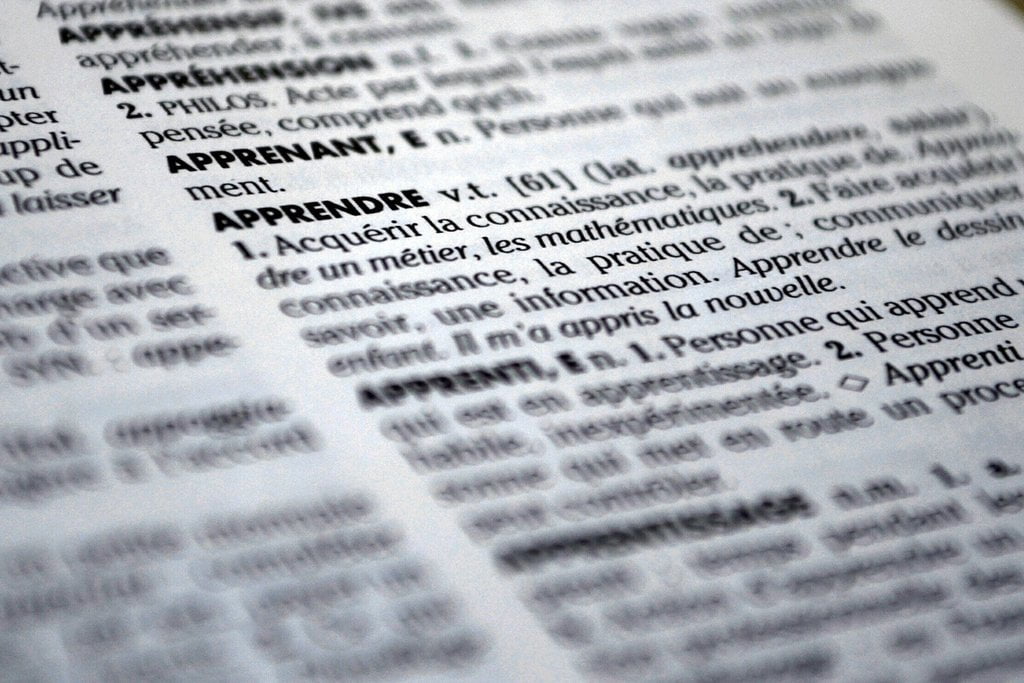How Much Time to Spend on Due Diligence

Most things in this world can be both gained and lost. From tangible items, like money, to non-tangible concepts, like trust, we usually have the benefit of learning from past mistakes, and then course-correcting to make up the difference the next time around.
There is at least one resource in our lives, however, that many consider the most precious of all. Once you lose it, it’s gone forever, and no one knows for sure how much of it they have left.
That resource is your time.
For the novice investor jumping into equity crowdfunding, the urge may be to spend countless hours screening deals, performing due diligence at the level of Venture Capital (VC) firms and professional Angels to ensure their dollars are not wasted.
This is not a bad mindset. But if you are investing $10 in each deal, would it make sense to spend 40 hours performing due diligence? Probably not. Even if you get 10X your money – a huge win – you just made $100 profit (before taxes) for 40 hours of work. That works out to a paltry $2.5 per hour.
Today, we will discuss the concepts of opportunity cost and the value of your time to ensure you aren’t being wasteful in your approach to crowdfunding due diligence.
While there is no definitive answer to “How much time should I spend screening equity crowdfunding deals?”, we will provide you with the tools and questions to help address this question in your investments.
For a great article on what due diligence is (especially from an equity crowdfunding perspective), check out this post from KingsCrowd.
One of our promises at CrowdWise – in addition to saving you time – is to present the real data to allow you to make decisions based on facts, not opinions. So before we get into the three factors that determine the proper amount of screening time, let’s take a look at what the due diligence data tells us from Angel Investing and VC firms.
Angel and VC Data for Due Diligence Time vs. Returns
There were only two studies among the Angel and VC literature that we analyzed which discussed the impact of due diligence time versus investment outcomes. Both studies arrived at a similar conclusion.
Due Diligence Findings from Study #1
The first is the 2007 Wiltbank and Boeker study, Returns to Angel Investors in Groups. This study looked at 1137 exits from 539 Angels, and had this to say:
“Due diligence time: More hours of due diligence positively relates to greater returns.”
How much of a difference did it make?
Using the median due diligence time of 20 hours, the Angels who spent fewer than 20 hours had an overall return multiple of 1.1X in 3.4 years (2.2% IRR). Those who spent more than 20 hours had an overall return multiple of 5.9X in 4.1 years (43.3% IRR).
When looking at the investors who spent more than 40 hours on due diligence, that return multiple jumps to 7.1X.
Furthermore, while the median was 20 hours, enough Angels went so far above the median that the average time spent on due diligence was actually 60 hours.
Takeaway from Study #1: Angels spend a median of 20 hours on due diligence per deal, but those who spent 20-40 had much higher returns (5.9X vs. 1.1X), and those spending 40+ hours per deal had even higher returns (7.1X).
Due Diligence Findings from Study #2
The second study is another by Wiltbank, but done on UK Business Angels in 2009, called Siding with the Angels. The findings are consistent with the 2007 study.
The median time spent by Angels conducting due diligence was 20 hours, and again, more hours of due diligence is positively correlated with higher returns. This study looked at 158 Angels who made 1080 investments and realized 406 exits.
How big was the impact on additional hours of due diligence in this UK study?
To start with, when Angels spent under 20 hours on due diligence, 60% of their investments returned <1X. When Angels spent more than 20 hours on due diligence, this failure rate dropped to 40%. Thus, due diligence accounted for a reduction in failures by nearly 20% between the two populations.
What about positive returns? Spending fewer than 20 hours led to only ~9% of investments returning more than 5X, while spending more than 20 hours on due diligence resulted in ~25% returning more 5X.
Takeaway from Study #2: 20 hours of due diligence significantly reduced the risk of failure for investments, while making an investment more than twice as likely of returning greater than 5X.
Venture Capital Due Diligence
Angels in the previous two studies spent a median time of 20 hours, but what about VC firms?
Angels are typically investing much earlier, such as at seed stage, pre-product-market fit. This means they tend to focus more on the team and potential market, since the startup may not even have a real product or sales to analyze at this stage.
For VC firms that invest later than seed stage, the company has already found product-market fit and has traction and sales, and so more due diligence can be performed. VCs also write bigger checks, so they want to be sure that the bets they are placing are wise ones.
As Jason Calacanis says in his book Angel:
“As the size of the checks starts to increase, the amount of diligence typically goes up, with venture capitalists doing paid background checks on individuals for things like felonies and lawsuit filings.”
And going back to the 2007 study, Wiltbank notes, “…formal venture capitalists may spend several months on due diligence…”.
Thus, we have ranges from 20-60+ hours for Angels, to several months or longer for VCs. So what is applicable to crowdfunding due diligence?
The Three Factors That Influence Amount of Due Diligence
The three elements in the due diligence balancing act are:
- Expected Financial Return
- Rate of Return (e.g. IRR of 15%, 25%, etc.)
- Amount of Invested Capital (e.g getting 20% return on $100 vs. $10k)
- Hours Invested
- Quality of Screening Process
Do you want a higher return? Then you either need to find a way to increase the quality/efficiency of your screening process, or invest a greater number of hours, or put additional capital in each investment (at a given rate of return).
What if you want to spend less time on screening? Then either accept a lower return and/or lower quality of your screening process.
Value of Time – Angels vs. Equity Crowdfunding
Let’s take an example that compares a typical Angel Investor with a Regulation Crowdfunding (Reg CF) investor to begin to understand how the three factors impact our decision about due diligence time.
For the sake of the comparison, let’s assume both investors are targeting a 27% annual rate of return, the average for Angels from numerous studies.
The primary differences between our example Angel Investor and Equity Crowdfund Investor could be as follows:
Angel Investor
- Net worth of $25M (10% allocated to startups would be $2.5M)
- $50k check size (for a portfolio of 50 companies, based on power law returns)
- 20 hours due diligence per deal (median from Wiltbank studies)
- Effective Pay of $675 / hour
- At 27% IRR for their portfolio, this works out to $2.5M*.27 = $675,000 the first year. Assuming 50 startups * 20 hours each = 1000 hours, that is $675k/1,000 hrs = $675/hr.
Equity Crowdfund Investor
- Net worth of $250k (10% allocated to startups would be $25k)
- $500 check size (for a portfolio of 50 companies – based on WeFunder’s posted results)
- 20 hours of due diligence per deal (we will show why this may not be realistic)
- Effective Pay of $6.75 / hour
- At 27% IRR for their portfolio, this works out to $25k*.27 = $6750 the first year. Assuming 50 startups * 20 hours each = 1000 hours, that is $6750/1000 hrs = $6.75/hr.
Would you rather be effectively paying yourself $675 or $6.75 an hour for your time? Simply because the amount of capital an Angel invests is greater, all else being equal, they receive a corresponding greater return on each hour invested.
This example demonstrates that the amount of capital you plan to invest will be a major driver in terms of the effective hourly rate that you get for your efforts.
Reg CF investors will definitely be investing less money than Angels, and so it probably makes sense to spend less time on crowdfunding due diligence then, right?
Not so fast. Remember the studies all showed that more time spent on due diligence is correlated with higher returns. So if you reduce your time on due diligence, you have to assume your potential returns won’t match those of Angels, or other Reg CF investors who spend more time.
Opportunity Cost
Perhaps you thoroughly enjoy screening deals and see it as your form of entertainment. Or maybe you find the education you gain from the process valuable in terms of business and technology. Or, you truly support the founder or technology that you are investing in, and couldn’t care less about financial returns.
Then, the hourly wage you are effectively paying yourself may not be as important.
However, regardless of your reasons for crowdfund investing, it is good to know the effective return you are getting for your valuable time spent investing. Knowing the value of your time, you can then look at the opportunity cost of your time, and decide if you might be better off spending that time doing something that gets you a higher return per hour.
Everything in life has an opportunity cost. Could you be working and making a guaranteed $30/hour instead? Or perhaps investing in passive index funds that would return only 5% a year on your $25k, but for only 2 hours a month – which works out to $52/hour effective return for your invested time. Or maybe you value your nights and weekends and would rather be spending time with your kids or friends.
These are all trade-offs that must be considered at the outset of your crowdfund investment journey.
Let’s now take a look at some examples and references for estimating your potential return on time invested for equity crowdfunding.
The Equity Crowdfunding Screening Time Calculator
We constructed a few quick-reference charts to help you identify where you might fall and give you a quick idea of expected returns vs. time invested.
Below is an embedded Google Sheet you can use (after making a copy – the version below is read-only) to input your hours spent screening deals, the amount you invest per deal, and your anticipated returns, to see what you are effectively paying yourself.
You can also view the file here to make a copy and modify for your own use.
The three tables in the file are described below, to give investors a quick estimation in terms of the potential trade-offs of time, capital, and returns.
- Profit per Deal – Investment Amount (i.e. check size) vs. Expected Return Rate
- Effective Hourly Rate – Investment Amount vs. Expected Return Rate, for a given number of hours
- Effective Hourly Rate – Investment Amount vs. Number of Hours per Deal, for a given Expected Return Rate
Example – Applying the Due Diligence Time Matrix
Let’s walk through a few quick examples of how an investor could use the previous tables to create a strategy for their due diligence process.
For simplicity, let’s assume an investor has a net worth and annual income of $80,000. Her Reg CF annual investment limit would be the lesser of 5% of her net worth and income, or $4,000. Her effective hourly rate at her salaried job is $38.50 per hour (before taxes, benefits, etc.). Update 3/15/21: the SEC updated Reg CF investor limits to now use the greater of net worth and income. This example uses the old limit method.
Assuming that she would invest all $4,000 across 50 companies to get proper diversification and exposure to power law returns, that would work out to $80 per deal.
Using the time-value calculator in Rows 3-7, targeting a 27% annual return (not a guarantee of future performance), that would work out to an effective rate of $1.08 per hour, assuming she spent the median 20 hours per deal. Note: this is also very optimistic, since in reality she would be screening many more deals that she would decide not to invest in.
Unless she really enjoyed the screening process, that probably isn’t an efficient use of her time. Working just a single hour extra at her current job (at $38.50/hour) would be the equivalent of putting roughly 35 hours into crowdfund investing with the above assumptions.
How do we improve her crowdfund returns vs. time invested?
What if she spent less time? If she could improve the efficiency of her screening process to obtain the same quality of results but for 4 hours per deal, she will boost her effective hourly rate to roughly $5.40 per hour, a 5X improvement.
And assuming she could put 5X the capital to work ($400/deal for $20k total), at 4 hours per deal, that would equate to $27/hour; starting to be more reasonable vs. the opportunity cost of her $38.50/hour job.
These are the types of trade-offs that investors must study before jumping into equity crowdfunding.
Does she really believe that her results will still yield 27% returns with only 4 hours per deal? Perhaps there are ways to outsource parts of the due diligence and make more efficient use of time, as we will now discuss.
Tools and Ideas for Increasing Due Diligence Efficiency
There is no shortage of productivity hacks and time-savers on the internet and in books today.
In addition to basic productivity techniques like eliminating, automating, and delegating (key focuses in Tim Ferriss’ The 4-Hour Workweek), there are some specific products and services available today that crowdfund investors can take advantage of to make better use of their time.
KingsCrowd – KingsCrowd is a Boston startup that is currently the #1 independent rating service for equity crowdfunding. They are looking to become the Morningstar of equity crowdfund investments. While their deal-ratings platform is currently under development, they already offer comprehensive write-ups of both their top deals and underweight (i.e. low expectation) deals, and take the time to interview founders, teams, and experts to help you with your due diligence.
KingsCrowd estimates that their team currently spends an average of 10-12 hours per deal performing due diligence. Whatever you currently value your time at, it’s hard to argue with the value of getting 12+ hours per deal of due diligence at their current subscription rate of $10 per month.
Assume you use their platform for only four deal recommendations a month; you’re then effectively paying $0.21 per hour ($10/month/(4 deals * 12 hours)) to outsource part of your due diligence process to experts in the equity crowdfunding field. Even if that only makes up a portion of your personal due diligence process, services like KingsCrowd are already helping to make your due diligence more efficient.
SPECIAL OFFER for Crowdwise members: Sign up today at Kingscrowd and use coupon code “WISE20” at checkout to get a free 30-day trial of either Kingscrowd’s Crowd or Pro paid services.
Full Disclosure: I am an investor in KingsCrowd since their raise on Netcapital. However, I truly believe in their vision and only recommend products and services that I feel are the best and will provide value and time savings to you.
Networks and Groups – Reddit, Facebook groups, and sites like CrowdWise are starting to offer investor communities. Share ideas, and if possible, harness the power of the crowd and share due diligence.
Look at Other Investors – all else being equal, would you rather invest in a company that has no known investors, or a company backed by a professional VC firm and/or an experienced Angel? Knowing that other professionals have already vetted and invested in a company can be an indicator (though not a guarantee) that they performed due diligence and decided that the company was worthy of their investment dollars. Besides having “skin in the game”, having these professional investors on-board means they are also likely providing mentoring and guidance to the company, which can help protect your investment dollars.
Experience – keep notes of all your investment decisions, whether that’s in a notebook, spreadsheet, or other form. Personally, I keep an “investment decision log” that lists out my reasons for investing in every deal as well as potential risks and concerns. Many VC firms and hedge funds, such as Bridgewater Associates (from Ray Dalio’s book Principles), use similar techniques for documenting and improving their decision-making. Then, as you gain more experience, you can reflect on past decisions, and then adjust your future investments accordingly.
Funding Portal Due Diligence and Filters – while it shouldn’t be used as your only filter, each funding portal has its own requirements and filters to decide which companies are approved to raise on their website. While many of the equity crowdfunding sites do simple checks to weed out potential fraud, some – such as SeedInvest – take it a step further and do perform their own due diligence process by looking at the business.
Crowdfunding Due Diligence Time – Personal Preference and Balance
Finding the right balance of time between your investment objectives and the capital you are investing is all part of the process.
To summarize, ask yourself these three questions to help determine your personal due diligence strategy:
- What are my target financial returns (target IRR and amount of capital invested)?
- How much time can I dedicate to screening deals?
- What quality of investment outcome do I expect from my specific screening process and invested time?
Understanding how due diligence has historically led to greater investment outcomes can help you develop your personal strategy. Just realize that equity crowdfunding will be different from Angel investing, but exactly how it will be different is still to be seen.
In the end, every investor will have different preferences and processes that lead to different outcomes. The important thing is to understand the effective return you are getting for your time, so it is a conscious decision that fits with your investment goals.






[…] However, as crowdfunding investors will likely be investing much smaller sums of money compared to angels (more in the $100-$1,000 per deal range), it doesn’t make financial sense to be spending upwards of 20+ hours screening each deal. […]
[…] time to spend 40 hours on due diligence if you’re only investing $50 (see our article on the due diligence vs. time tradeoff). It requires balance and will depend on each investor’s preferences, reasons for investing, […]